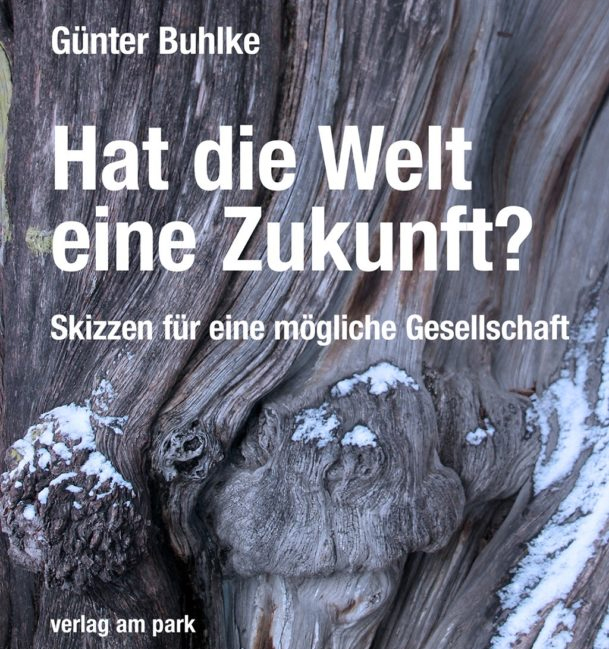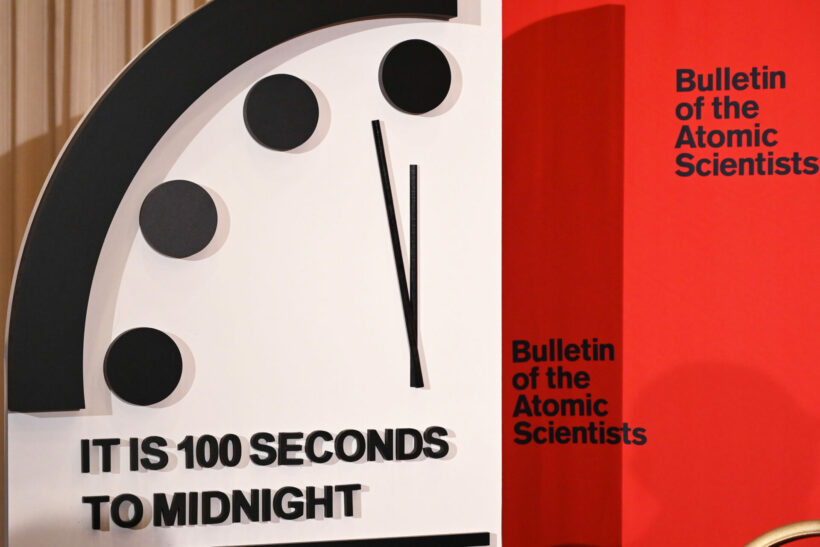The turn of the year again focuses our thoughts more on the future of families. Hopes turn to health, peace and well-being. The German chancellor Olaf Scholz spoke at the last general assembly of the UN of a change of times, without explaining more precisely where, according to his opinion, the journey will take Germany and mankind.
Back to the conditions of the thirties and forties in the 20th century? At that time a right fascist movement in Italy, Germany, Spain, Japan, Romania and the Baltic countries shaped the world according to their understanding. (W. Abendroth, E. Nolte “Theories about fascism”).
The movement presented itself at that time in Germany as a representative of the interests of the middle class and the working masses against the excesses of monopoly capital. This was already evident from its name as the National Socialist German Workers’ Party, or Nazi for short. It enjoyed the goodwill of the nationally thinking greats of the society. Their understanding allowed the mass murder of people of Jewish faith. As we know, the movement drove the countries of the world into World War 2.
Or was the chancellor thinking in the direction of a future social order which, in the face of the tragedies of war and anti-Semitism, wants to permanently establish a humane society? The war in Ukraine has startled many. Weapons systems have become too destructive. At the same time, climate change threatens to make the planet uninhabitable for humans, as Stéphane Hessel put it in a polemic (“Empört Euch,” Ullstein) (“Be indignant”, Ullstein) (Translator’s note: Ullstein published books and famous German newspapers). He did not stop at a description. Hessel lamented deputies and politicians who fail to make effective changes.
The chancellor was silent on what he understood by the turn of the times in his speech.
Equality, fraternity and peace have been abolished as social goal markers of the future by the CDU, FDP, SPD (German parties),and the Greens.
On December 8, 2022, the German Historical Museum in Berlin opened an exhibition on 14 historical tipping points, which makes you think deeply [about what would have happened] if historically other paths had been taken! For example, “What would have happened if the first atomic bomb had been dropped on Germany to end World War 2?”. Another scenario for visitors to the exhibition: “On August 13, 1961, an American and a Russian tank faced each other just a few meters away at Checkpoint Charlie in Berlin” (Translator’s note: Checkpoint Charlie represented the separation of East and West. It became a symbol of the Cold War).
Thanks to rational politicians in Washington and Moscow, peace was maintained. President Kennedy is said to have declared: “I’d rather have a communist living son than a dead one”. A mindset that during WW2 allowed the anti-Hitler coalition between the U.S., Russia (USSR) and Great Britain despite ideological opposition. The coalition developed the power to defeat fascism in Germany and Japan. The Truman Doctrine of 1947 shattered humane cooperation with its core thesis of “stopping and pushing back socialism.” It gave the starting signal for the Cold War, which does not seem to be finished yet, if one looks at the current front lines in Ukraine or reads last month’s final papers from G7 and NATO meetings.
Right-wing to fascist movements have by no means disappeared from the world after World War II. In Latin America they made it to governments (Chile, Brazil, Argentina, Paraguay and others) that were tolerated by the USA. In the U.S., there have been extreme acts, for example the apartheid policy, the Watergate scandal, Kennedy’s assassination, up to Trump’s change of government, that have left their mark. A changeable democracy leads to reflection (“Unverkürzte Demokratie” (Unabridged Democracy), Cristina Lafont, Suhrkamp,2021).
The world community is currently at a new crossroads or tipping point. The war in Ukraine has all the characteristics to trigger a third world war.
The power to stop the tragedy and to take other directions is held by the 4 world powers: USA, EU, as well as China and Russia, in association with the UN Security Council. They have the necessary authority to chart a path of détente. Each of them declares publicly to have the will for peace. However, they have not yet found the treaty-binding details.
Foundations for ending World War 2 were created by [the members of] the anti-Hitler coalition, which together found ways to defeat the destructive fascist movements of Germany and Japan. Humane reason had won a victory.
At present, China, as a new great power, could contribute to the solution of the Ukraine conflict, [and] not only as a member of the Security Council. The country has managed to work its way up from a developing country to its current greatness essentially by its own efforts. It has caught up with the economic performance of the United States, with comparably minimal national debt.
The U.S. has financed its development with high debt for years and currently has about $31 trillion (12 zeros in one trillion) in public debt with a debt-to-GDP ratio of 136%. The EU has exceeded its constitutional norm ratio of 65% and is at 78%. The PRC (People’s Republic of China) is a creditor of the U.S. debt and posts annual export surpluses. With the opening of the market, China offered the Western system a booming market of 1.3 billion people and its own production facilities in China’s special zones. The prerequisite was recognition of the country’s laws, as is customary internationally. China’s national economy drew on the experience of the planned economies of the socialist countries and elements of capitalist business economics. Cooperatives and state ownership (iron rice bowls), together with private ownership of means of production and mixed capital relations, were the prerequisites for successful development. The Huawei cooperative is one of the largest private enterprises in China. Not to be underestimated is the state’s balanced planning of major sectors (including the economy, education, science, security, transportation, housing, culture) combined with the participatory democracy of the country’s parliaments.
China’s leadership concepts differ from those of the Western order in several respects: The U.S. thesis that there can be only one sole winner in competition is dubious. In sports, everyone who surpasses their previous best performance wins. Of course, the best [one] or the best [ones] deserve a trophy. In the competition between social systems, there is no single target. The different stages of economic development of the countries do not permit this. Competition between countries does not have a comparable fair basis (raw materials, consequences of colonialism, traditional wage levels, tax revenues, granting of subsidies, customs duties, etc.). Economic competition between countries is not about a winner becoming the strongest in the world, but about improving the livelihoods of its people through its own efforts.
Perhaps this would be a way to turn the tide, which the Chancellor could have in mind. But that would require concrete decisions by the German parliament and government.
The PRC uses respectful language in its public dealings with other states, despite having suffered historically. The North Americans once supported England with military naval units so that China would open its borders to the opium trade. It didn’t stop there. During the Chinese Civil War, the U.S. supported Chiang Kai-Shek, who fled to the island [of Taiwan], with weapons and ammunition and declared itself a protecting power; a relationship that continues to the present. The agreement allows American aircraft carriers to cruise near the island and flex their military muscles; an island half the size of Bavaria, which is Chinese state territory.
Unlike Russia, the EU, and the United States, the PRC is not involved in the war in Ukraine with weapons technology and financial aid. Neither does the country pursue a hostile policy toward the West through its public media. It offers its concept of peaceful coexistence for mutual benefit and non-interference in each other’s internal affairs.
Its active cooperation to resolve the conflict in Ukraine could trigger peace impulses.
The human rights allegations pushed by the EU and the USA should not be obstacles. The number of human rights violations in the U.S. and the EU is too high. An international conference on this issue is long overdue. In this sense, the article of Dec. 17, 2022 in the Berliner Zeitung by Klaus Bachmann “Why do we accept dead bodies in the sea?” is instructive.
The author Günter Buhlke, former Board member of a Berlin housing cooperative, former director at the Swiss Merchants Association describes in his new book “Hat die Welt eine Zukunft?” (Does the world have a future) Verlag am Park, ISBN 978-3-947094-79-0 (Verlag am Park, 194 p.) alternatives for a humane world.







